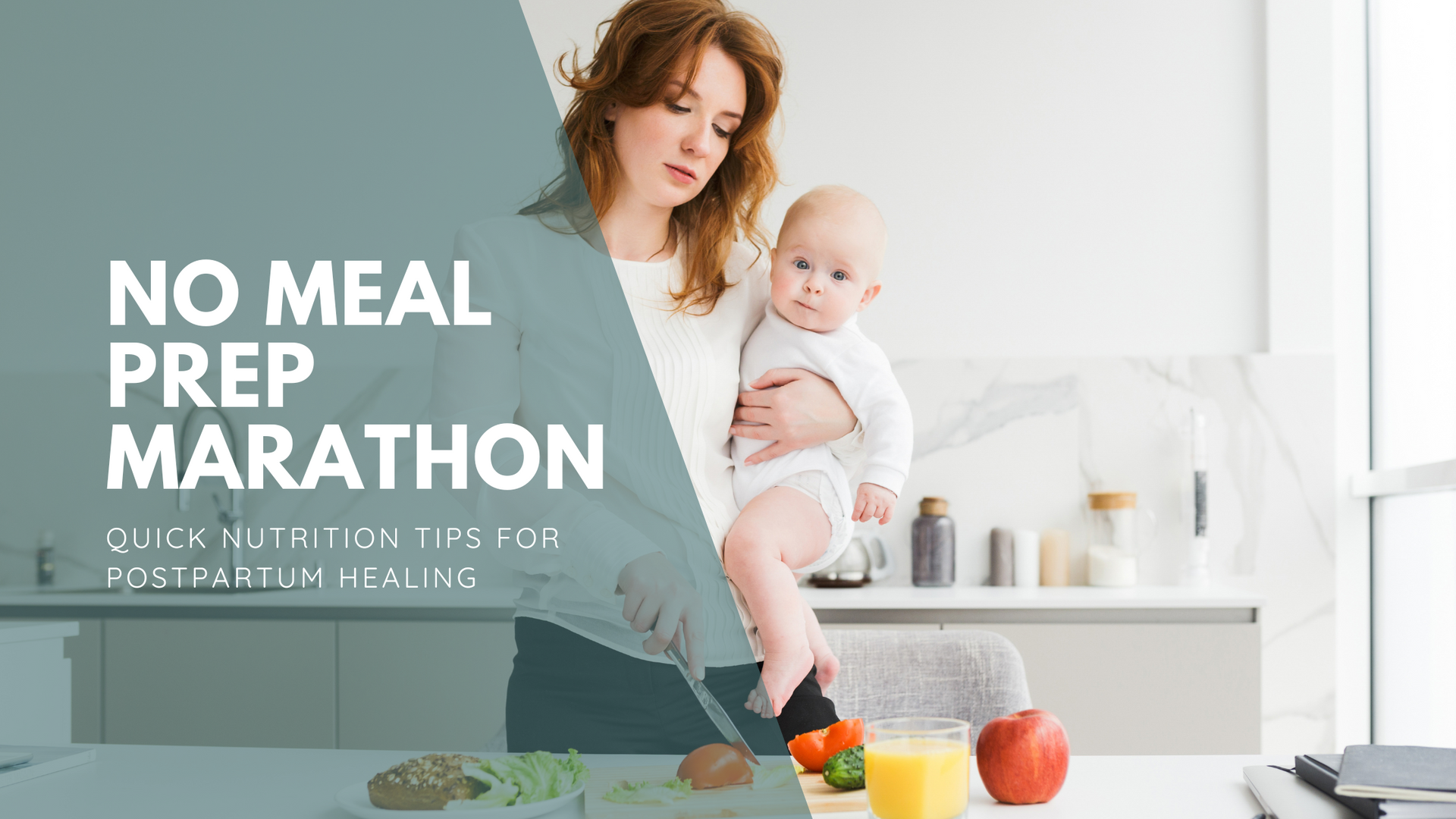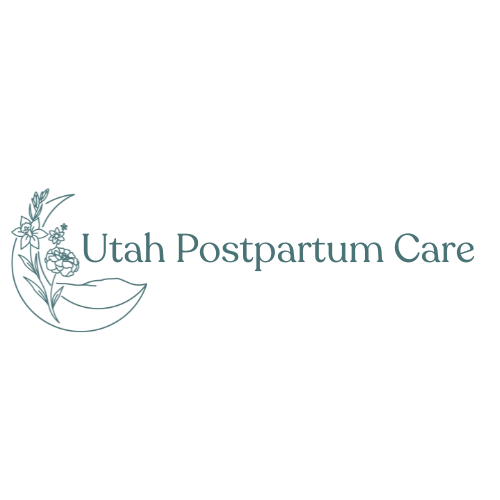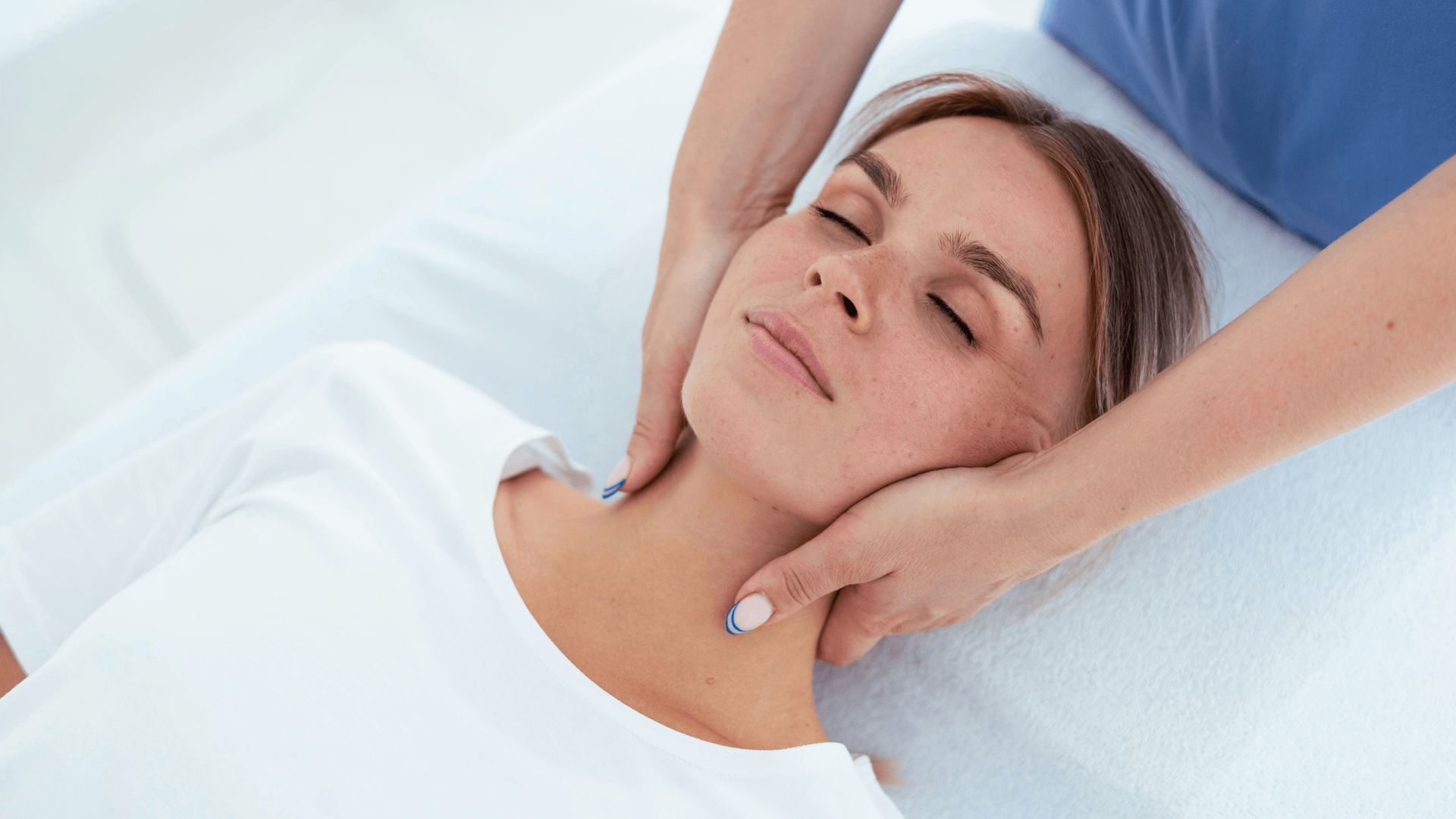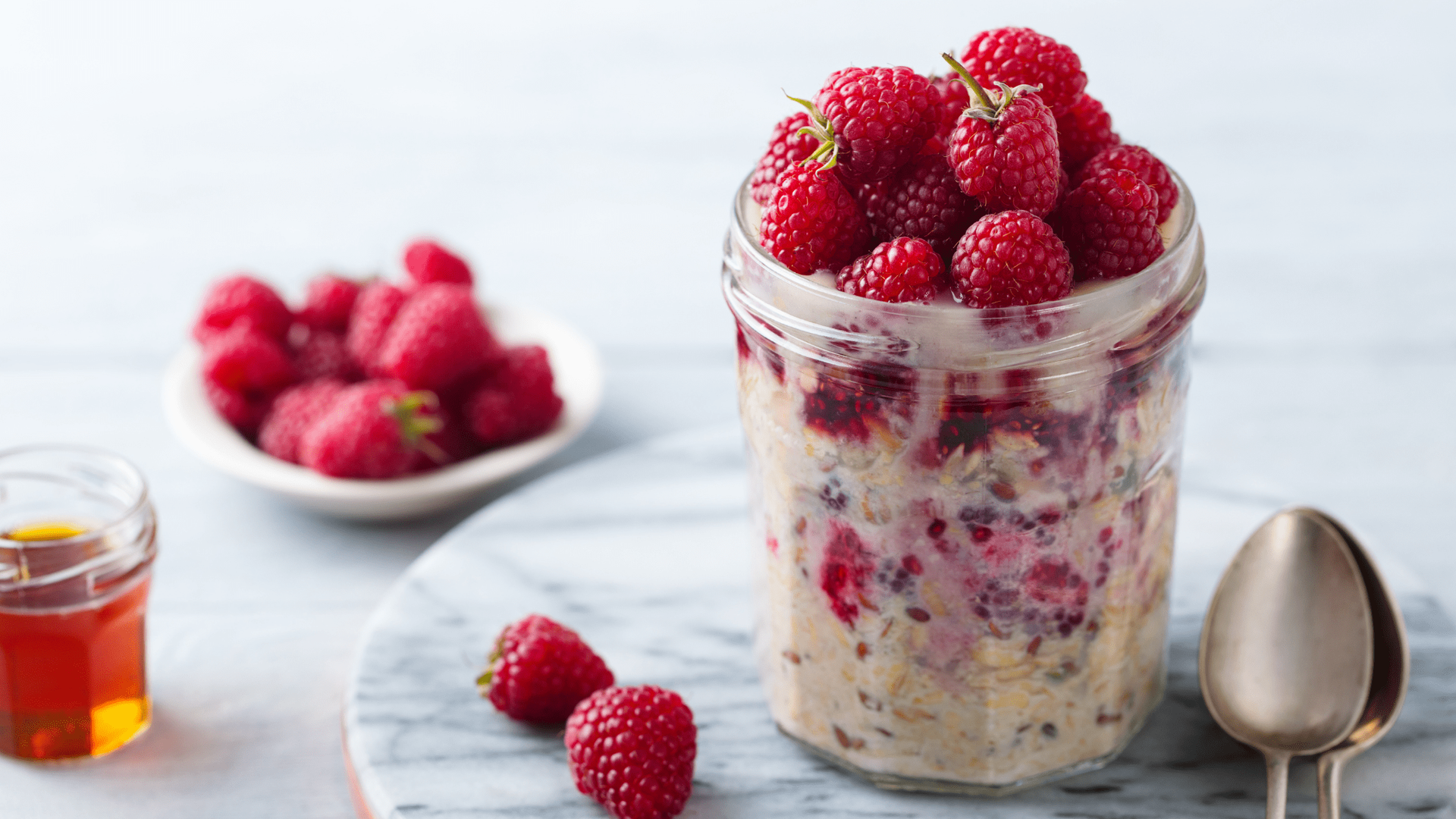No Meal Prep Marathon: Quick Nutrition Tips for Postpartum Healing
No Meal Prep Marathon: Quick Nutrition Tips for Postpartum Healing

If you’re googling “postpartum snacks” with one hand and holding a baby with the other, you know you’re in the thick of it.
Between diaper changes, late-night feeds, and
healing from childbirth, the idea of meal prepping for the week can feel like a lot. But postpartum healing doesn’t require a freezer full of Pinterest-perfect casseroles or three hours of chopping kale. It requires fuel: real, warm,
nourishing food that supports your body and brain while you rest, recover, and figure out how to do life with a tiny human attached to you.
Let’s ditch the pressure and focus on quick, realistic nutrition tips that make healing doable (even when your meal is half a granola bar and three cold bites of something once called lunch).
Why Postpartum Nutrition Is So Important
Your body is doing a lot right now. You’re recovering from birth, navigating hormonal shifts, and adjusting to your new life as a parent. You need food that supports healing, boosts energy, and keeps you nourished without adding stress.
Good nutrition can:
- Speed up postpartum recovery (wound healing, muscle repair)
- Support mental health (hello, mood balance)
- Provide the energy needed for breastfeeding or pumping
- Help with hormone regulation
- Strengthen your immune system
But you don’t need a chef-level meal plan to get the benefits. With a few simple tweaks, you can ensure that your nutrition supports you during this intense season without the burnout of hours in the kitchen.
Quick Nutrition Tips for Postpartum Healing
Here are some actionable, no-fuss tips to help you get the nutrients you need in between the chaos of new parenthood:
1. Focus on Easy, Whole Foods
When time is tight, keep it simple:
- Fruits and veggies (fresh or frozen)
- Nuts and seeds (for protein and healthy fats)
- Whole grains like oats, quinoa, or brown rice
- Lean proteins, like chicken, eggs, or tofu
- Full-fat dairy or dairy alternatives (for calcium and fat)
You don’t have to make fancy dishes. Just aim for simple meals that offer a balance of these macronutrients.
Tip: Pre-washed salad greens or frozen veggie bags are your friend when you’re short on time.
2. Hydrate Like It’s Your Job
Hydration = healing. You’re recovering from childbirth, possibly breastfeeding, and your body is in full-on recovery mode. Making hydration a priority.
Here’s how to stay on track:
- Keep a water bottle nearby at all times
- Drink electrolyte drinks (coconut water, sports drinks, or homemade) to replenish fluids
- Have a hydration station in your kitchen or by your nursing area, with water and snacks at arm's reach
Pro Tip: Make a batch of
homemade electrolyte water
(combining water, sea salt, lemon, and honey is an easy one) to keep on hand when you're craving a refreshing drink.
3. Go for Nutrient-Dense Snacks
Instead of reaching for sugar-filled snacks that leave you sluggish, choose options that are nutrient-dense and easy to eat while holding your baby.
Snack ideas:
- Trail mix (nuts, seeds, and dried fruit)
- Greek yogurt with honey or fruit
- Hummus and veggies or crackers
- Smoothies (pre-made or blended fresh with fruit, spinach, protein powder, and almond milk)
- Hard-boiled eggs
Quick tip: Keep a stash of snacks in different rooms of the house, especially near where you breastfeed or spend a lot of time. This will keep you from raiding the pantry for junk when you're feeling too tired to cook.
4. Meal Delivery or Meal Train: Don’t Skip It
You don’t have to do it all yourself. If you have friends or family offering help, consider asking for a meal train or meal delivery that focuses on nutrient-dense, easy-to-heat meals.
Or, look into services that cater specifically to new parents:
- Postpartum meal delivery services
- Prepared meal services (like meal kits or frozen meals)
This saves you from the burnout of meal prep and ensures you're still getting the nutrients you need for healing.
5. Boost Your Protein and Iron Intake
After birth, many parents are depleted of iron, especially if they experienced heavy bleeding during labor. Make sure you’re getting enough protein and iron-rich foods to replenish and fuel your body.
Iron-rich foods include:
- Leafy greens like spinach and kale
- Lean meats like beef or turkey
- Beans, lentils, tofu, and quinoa
Tip: Pair iron-rich foods with Vitamin C (like citrus fruits or bell peppers) to enhance absorption.
How a Postpartum Doula Can Help with Nutrition
If meal prep feels like too much or you’re struggling with what to eat, postpartum doulas like us can support you in a variety of ways:
- Nutritional guidance: We can recommend easy meals and snacks that help you recover quickly.
- Meal prep: We can assist with making simple, nourishing meals that are ready to eat or easy to heat.
- Feeding support: We can help you stay on track with your hydration and nutrition while navigating breastfeeding or pumping routines.
- Encouragement: We remind you that you deserve good food and it’s okay to ask for help.
Learn more about our nutrition services for more support!
Keep It Simple and Nourishing
Postpartum healing doesn’t have to involve a meal prep marathon. Focus on foods that nourish your body, boost your energy, and support your recovery without adding stress to your already full plate.
We’re here to guide you through this time of recovery and transition with realistic, nourishing, and supportive care. Whether you need meal support, nutrition tips, or simply a listening ear, we’ve got you covered.
Book a consultation today to learn more about how we can support you during your postpartum journey.
FAQ
How much protein do I need postpartum?
Aim for at least 60-80g of protein daily to support healing, breastfeeding, and energy.
Can I still eat my favorite comfort foods during postpartum?
Yes, but balance is key! Comfort foods are occasionally great, but aim for nutrient-dense options to fuel your body.
Should I take any supplements after birth?
It’s a good idea to talk to your healthcare provider, but commonly recommended postpartum supplements include iron, calcium, Vitamin D, and a multivitamin.
We’re now booking under our expanded brand,
Utah Postpartum Care. If you’re looking for overnight support, meals, or real 4th trimester help—this is for you.









